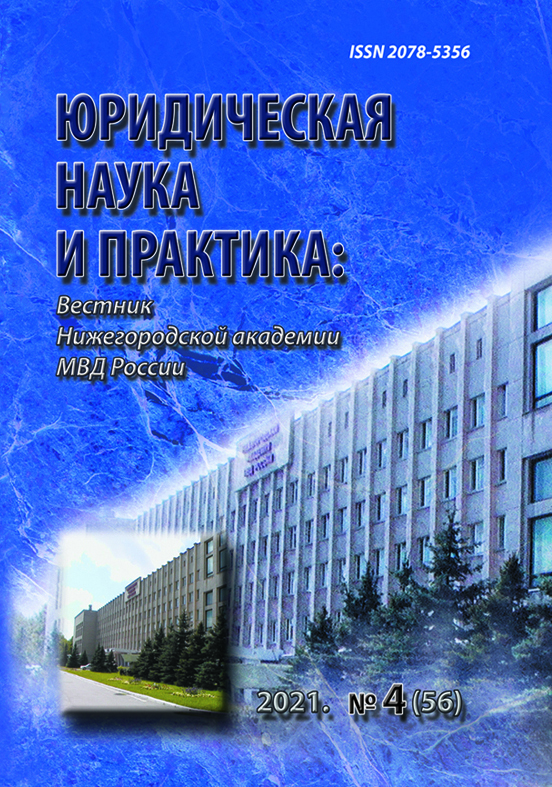Russian Federation
from 01.01.2007 until now
Rossiyskiy gumanitarnyy nauchnyy fond pri Pravitel'stve Rossiyskoy Federacii (ekspert)
Russian Federation
The authors address one of the problems of interaction between natural sciences and humanities — the use of theoretical provisions of synergetic, theories of dissipative structures and turbulence in the study of problems of the history of state and law through the prism of a bifurcation approach. The article discusses the general conceptual issues of understanding bifurcation and the bifurcation approach as tools for studying social processes and institutions. Special attention is focused on the methodological design and the possibilities of its use as a cognitive tool in research practices.
synergetics, sociosynergetics, social and humanitarian sciences, legal sciences, methodology of studying state-legal phenomena and institutions, methodological approaches, bifurcation approach
1. Anishchenko V. S. Introducing Nonlinear Dynamics. Moscow, Izhevsk, 2002. 144 p. (In Russ.)
2. Borodkin L. I. Bifurcation in the processes of evolution of nature and society: general and specific in the assessment of I. Prigozhin. Newsletter of the Association “History and Computer”, 2002, no. 29, pp. 143-157. (In Russ.)
3. Borodkin L. I. Methodology for the Analysis of Unstable States in Political-Historical Processes. International Processes, 2005, vol. 3, no. 1, pp. 4-16. (In Russ.)
4. Vallerstajn I. The end of a familiar world. Sociology of the XXI century. Moscow, 2004. 368 p. (In Russ.)
5. Gurevich A. Ya. Historian of the late XX century in search of a method. Odysseus. Man in history, 1996, pp. 5-10. (In Russ.)
6. Zyryanov A. V. Synergetic concept of state understanding. Moscow, 2019. 320 p. (In Russ.)
7. Ippolitov G. M. On the issue of a synergetic approach in historical and historiographic research. Izvestia of the Samara Scientific Center of the Russian Academy of Sciences, 2010, vol. 12, no. 2, pp. 207-216. (In Russ.)
8. Knyazeva E. N., Kurdyumov S. P. Synergetic paradigm. Basic concepts in the context of the history of culture. Living ethics and science, 2008, no. 1, pp. 379-443. (In Russ.)
9. Lazarev V. V. Risks in legal science. Legal technology, 2019, no. 13, pp. 19-27. (In Russ.)
10. Laslo E. Age of bifurcation: comprehension of the changing world. Path, 1995, no. 1, pp. 3-129. (In Russ.)
11. Lebedev S. A. Three epistemological paradigms: classical, non-classical and post-non-classical. Bulletin of the Moscow State Regional University. Series: Philosophical Sciences, 2019, no. 2, pp. 8-21. (In Russ.)
12. Mozhejko M. A. Synergetics. Humanitarian portal. URL: https://gtmarket.ru/concepts/6876 (accessed 15.10.2021) (In Russ.)
13. Muzyka O. A. Social synergetics: methodology, semantics, axiology. Rostov-on-Don, 2010. 288 p. (In Russ.)
14. Muzyka O. A. Bifurcation and conflict: diversity of views and modern approaches. Bulletin of Taganrog State Pedagogical University, 2014, no. 2, pp. 305-309. (In Russ.)
15. Muzyka O. A. Bifurcations in nature and society: natural science and socio-synergetic aspect. Modern science-intensive technologies, 2011, no. 1, pp. 87-91. (In Russ.)
16. Nazhmudinov G. M., Vlasova A. A. Society and synergy. Yaroslavl, 2018. 36 p. (In Russ.)
17. Nikolis G., Prigozhin I. Cognition of the complex. Introduction. Moscow, 1990. 342 p. (In Russ.)
18. Petrov A. V., Zyryanov A. V. Synergetic approach in modern legal research. Bulletin of the South Ural State University. Ser. Law, 2017, vol. 17, no. 4, pp. 102-106. (In Russ.)
19. Prigozhin I., Stengers I. The order of their chaos. A new dialogue between man and nature. Moscow, 1986. 432 p. (In Russ.)
20. Prigozhin I., Stengers I. Time, chaos, quantum. Towards a solution to the paradox of time / transl. from English. Moscow, 2003. 240 p. (In Russ.)
21. Rozov N. S. Epochs of turbulence and their overcoming. Polity. Analysis. Chronicle. Forecast, 2019, no. 1, pp. 81-96. (In Russ.)
22. Tarasov N. N. Methodological problems of legal science. Ekaterinburg, 2001. 264 p. (In Russ.)
23. Haken G. Synergetics. Hierarchy of instabilities in self-organizing systems and devices. Moscow, 1980. 419 p. (In Russ.)
24. Yudin E. G. Methodology of Science. Consistency. Activity. Moscow, 1997. 445 p. (In Russ.)
25. Yanickij O. N. “Turbulent times” as a problem of risk society. Social sciences and modernity, 2011, no. 6, pp. 155-164. (In Russ.)













